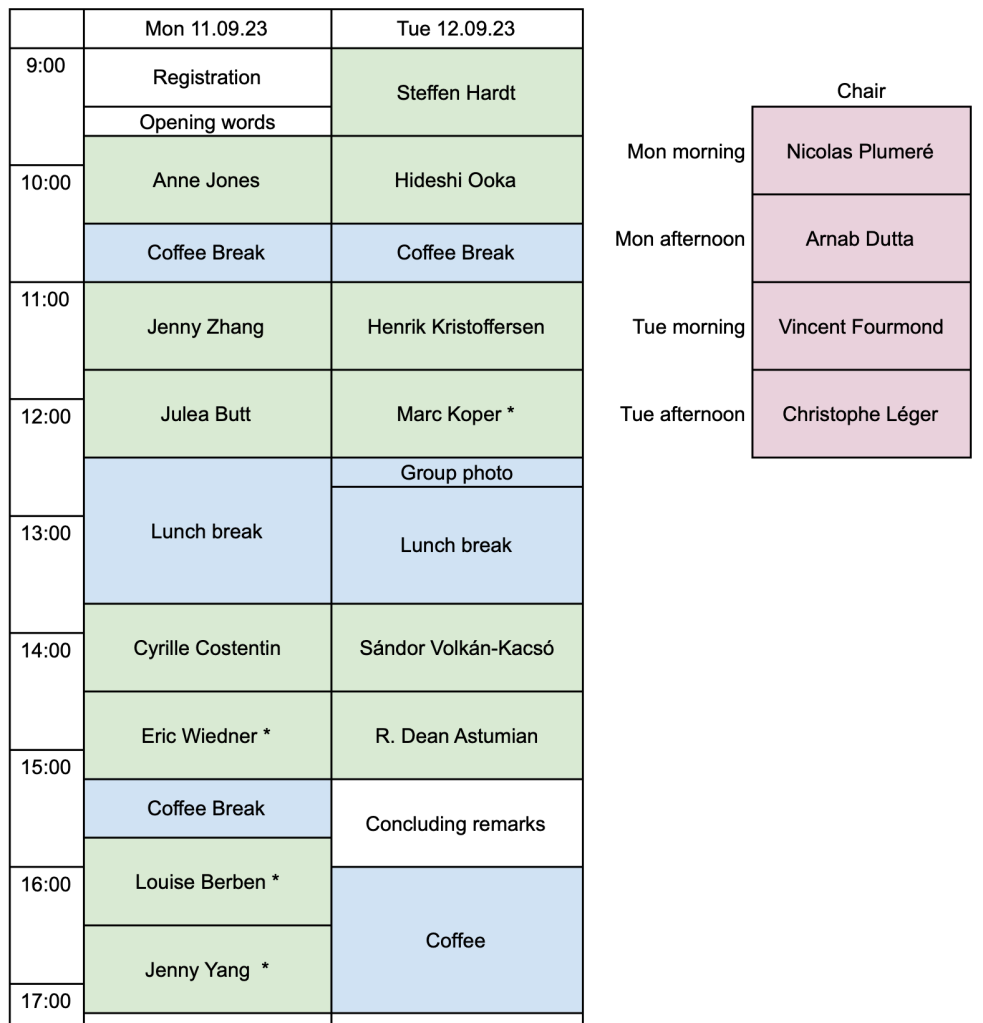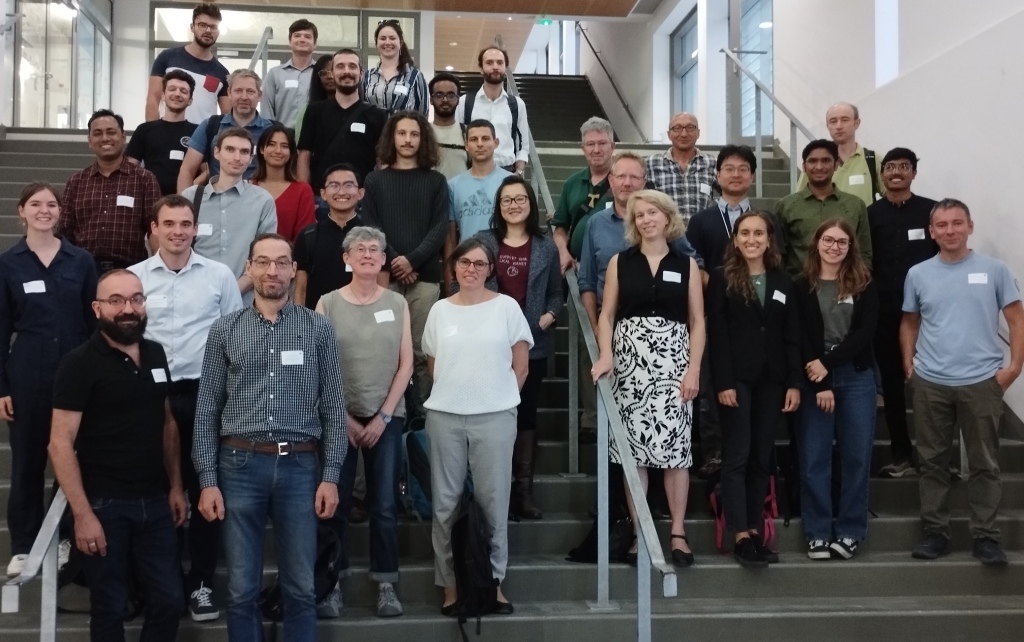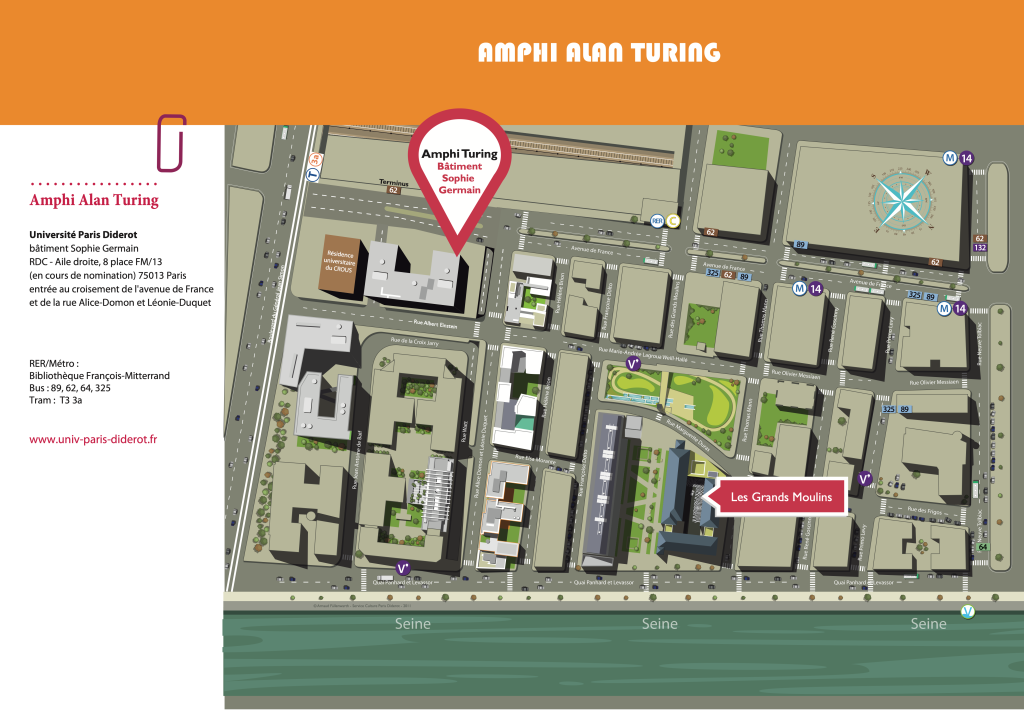September 11th-12th, 2023, Paris
Update on June 28th: the conference is relocated to Paris.
Program
This workshop focusses on the modelling and mechanistic questions related to bidirectional catalysis.
Whereas many catalysts work in the two directions of the reaction, bidirectional synthetic molecular redox catalysts are scarce. In enzymology, there has been much interest in trying to elucidate what makes a particular enzyme faster in one direction (a property sometimes called the “catalytic bias”). Related to this question is how much free energy is required to kick off catalysis and what makes the so-called “reversible catalysts” function at a fast rate even close to equilibrium, a property that is needed to design energy efficient devices. Examining experimentally the relations between catalytic rate and driving force is more difficult with a biological motor than with a molecular or a surface redox catalyst, but the same concepts apply. This workshop aims at bringing together people from different fields (surface catalysis, molecular catalysis, molecular machines) to clarify the overlaps, see how much knowledge can be transferred across disciplines, and describe recent advances in the use, design, benchmarking and kinetic modeling of bidirectional catalysts.
Confirmed speakers:
- Motors
- Rudolph A. Marcus (online) (California Institute of Technology, USA)
- Sándor Volkán-Kacsó (Azusa Pacific University, USA) “Correlation between nucleotide binding and release in the ring-shaped F1-ATPase motors”
- Raymond Astumian (University of Maine, USA) “Understanding the directionality of molecular motors: Kinetic asymmetry vs. Power Stroke”
- Synthetic homogeneous catalysts of redox reactions
- Cyrille Costentin (Université Grenoble Alpes, F) “Bidirectional Systems in Molecular Catalysis of Electrochemical Reactions: Role of Proton Relay”
- Jenny Y. Yang (University of California, Irvine, USA) “Electrocatalytic oxidation and reduction at the same catalyst”
- Eric Wiedner (PNNL, WA, USA) “Origins of Reversibility in Molecular Electrocatalysts for Interconversion of H+/H2”
- Louise A. Berben (The University of California, Davis) “Mechanisms of Hydride Formation and Hydride Transfer with Metal Clusters”
- Electrocatalysis
- Marc Koper (Leiden University, NL), “Properties of optimal electrocatalysts”
- Henrik H. Kristoffersen (Department of Chemistry, University of Copenhagen) “Bidirectional reactions on non-ideal heterogeneous catalysts”
- Hideshi Ooka (RIKEN CSRS, Japan) “Microkinetic Modelling of 2-Step Electrocatalysts and Enzymes”
- Redox enzymes
- Anne K. Jones (Arizona State University, USA) “Electrocatalytic Phenotypes of Hydrogenases: What is the Natural Variability?”
- Julea Butt (Unif of East Anglia in Norwich, UK) “A tale of two cytochromes, thiosulfate and tetrathionate”
- Steffen Hardt (Technical University Munich, G) “Reversible Catalysis of Polymer-Embedded [FeFe]-Hydrogenase – Energy Efficiency and Protection from O2”
- Jenny Zhang (Cambridge University, UK)
Scientific committee:
- Christophe Léger (BIP, CNRS/AMU, Marseille)
- Vincent Fourmond (BIP, CNRS/AMU, Marseille)
- Jalila Simaan(ISM2, CNRS/AMU, Marseille)
- Nicolas Plumeré (Technical University of Munich)
- Anna Aldinio (BIP, CNRS/AMU, Marseille)
- Andrea Fasano (BIP, CNRS/AMU, Marseille)
- Jérémy Wozniak (BIP, CNRS/AMU, Marseille)
- Antoine Jacob-Villedieu (BIP, ISM2, CNRS/AMU, Marseille)


Venue & Location
Bâtiment Sophie Germain – Université Paris Cité Bâtiment Sophie Germain – Université Paris Cité
Pl. Aurélie Nemours, 75013 Paris, France
